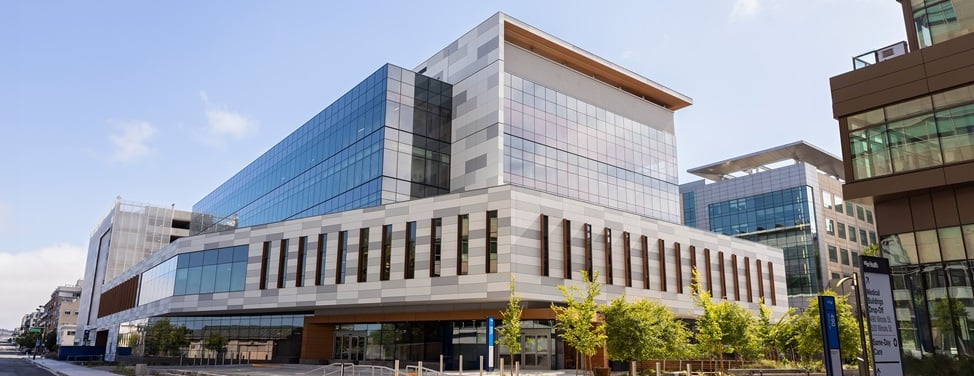
Gastrointestinal Medical Oncology Clinic
The UCSF Gastrointestinal Medical Oncology Clinic offers the most advanced and effective treatments available for cancerous as well as benign gastrointestinal conditions. These include conditions involving the anus, bile duct, colon, esophagus, gallbladder, liver, pancreas, peritoneal cavity, rectum, small intestine, spleen and stomach.
Our locations
Our team
Early-Onset Colon Cancer
Colon cancer rates are rising for people under 50. Watch leading doctors discuss possible reasons, risk factors and available treatments.
Clinical trials
Efficacy of Ra-223 in PSMA PET Optimally Selected Patients
The proportion of patients who achieve a greater than 50% decline from baseline prostate specific antigen (PSA) (PSA50) drawn prior to C1D1, at any point in the treatment course, will be descriptively reported along with 95% binom...
Recruiting
Lenvatinib Plus Pembrolizumab in Well Differentiated G3 Neuroendocrine Tumors
ORR is defined as a complete response (CR) or a partial response (PR) according to RECIST version 1.1 criteria. The All Subjects as Treated (ASaT, ITT) population will be used for analysis which consists of all participants who re...
Recruiting
Addressing the Nutritional Needs of Cancer Survivors With Nutrition Insecurity
The FIM is a four-item measure of implementation that assesses participants perceived appropriateness of the intervention. Each item response falls on a scale of 1 (Completely disagree) to 5 (Completely agree). A scaled score is c...
Recruiting
18F-Fluorocholine Positron Emission Tomography (PET) for the Detection of Parathyroid Adenomas
Sensitivity of 18F-fluorocholine PET for the detection of abnormal parathyroid adenomas confirmed by pathology as compared to sestamibi imaging. Location of parathyroid adenoma at imaging as read by three blinded readers, will be ...
Recruiting
U.S. News rankings
-

Among the top hospitals in the nation
-

One of the nation's best for gastroenterology & GI surgery
-

Best in Northern California and No. 7 in the nation for cancer care
Accreditations & memberships
-

National Cancer Institute
The National Cancer Institute has designated UCSF a comprehensive cancer center, its highest ranking. This designation is awarded to centers that demonstrate scientific excellence and the ability to conduct cancer research across many disciplines.
-

Commission on Cancer
UCSF's cancer programs have been accredited by the American College of Surgeons' Commission on Cancer (CoC) since 1933. The CoC is a consortium of groups dedicated to improving cancer patients' survival and quality of life via research, education and better medical care.
-

National Comprehensive Cancer Network
UCSF is a member of the National Comprehensive Cancer Network, an alliance of the world’s top cancer centers. The network brings together leaders in treatment and research to improve the quality, effectiveness and efficiency of cancer care.
Support services
Plan your visit
What to Bring
- Photo I.D.
- Health insurance card
- Insurance authorization, if required
- Doctor's referral, if required
- Recent test results related to your condition
- List of your medications, including dosages, plus any you're allergic to
- List of questions you may have
- Device or paper for taking notes
Related clinics
Our research initiatives
-

UCSF Helen Diller Family Comprehensive Cancer Center Research
UCSF is home to a range of research initiatives aimed at improving outcomes for cancer patients everywhere. This includes research on topics such as immunotherapy, BRCA mutations and molecular diagnostic testing.


































































